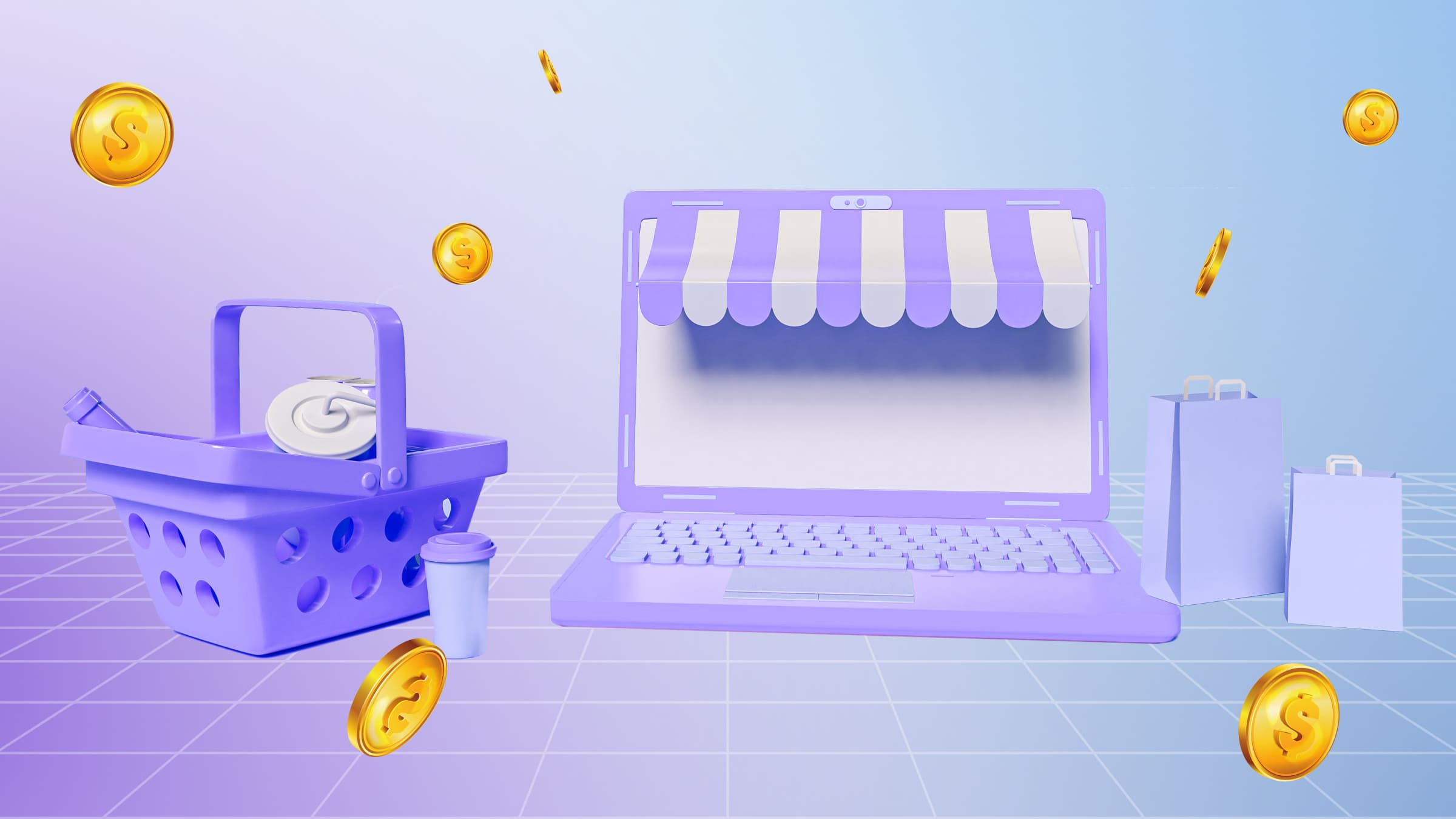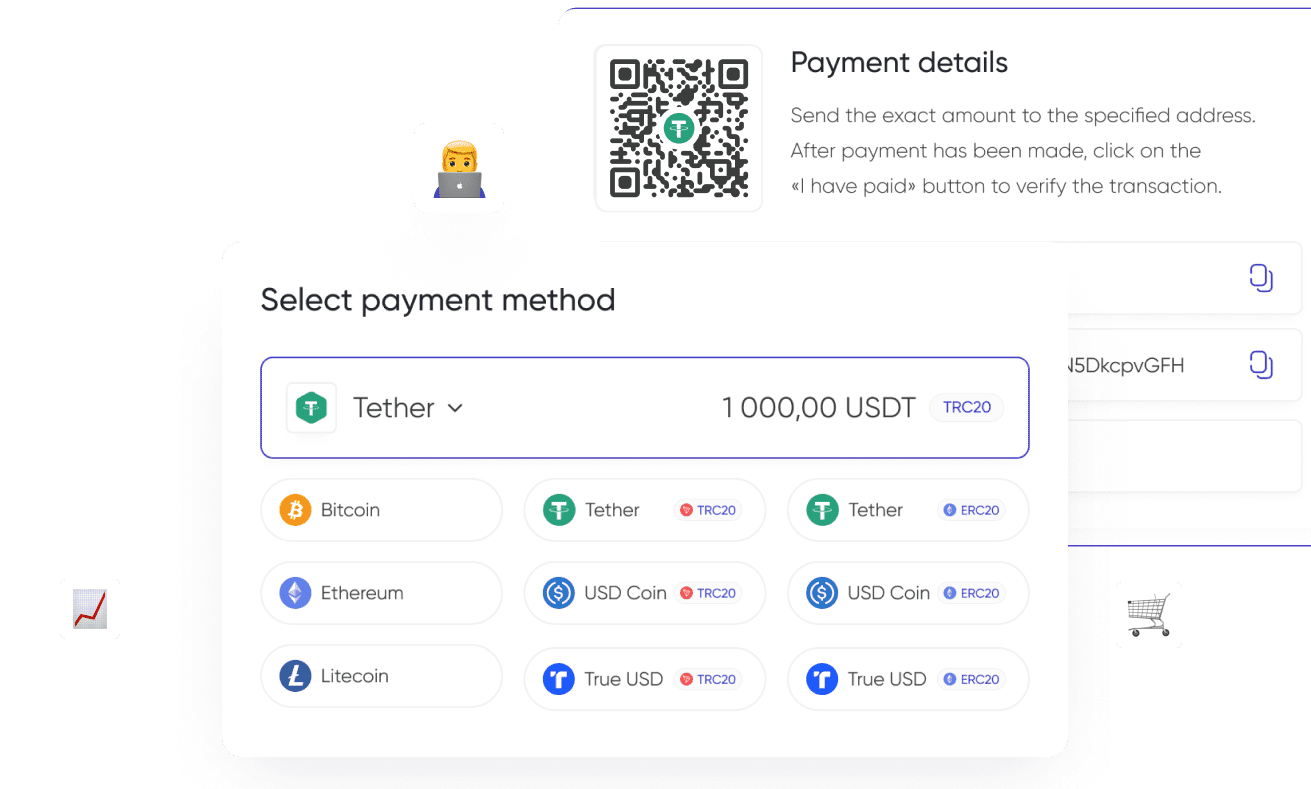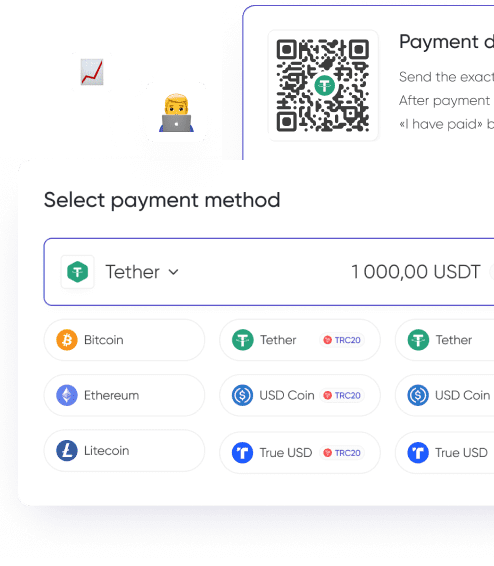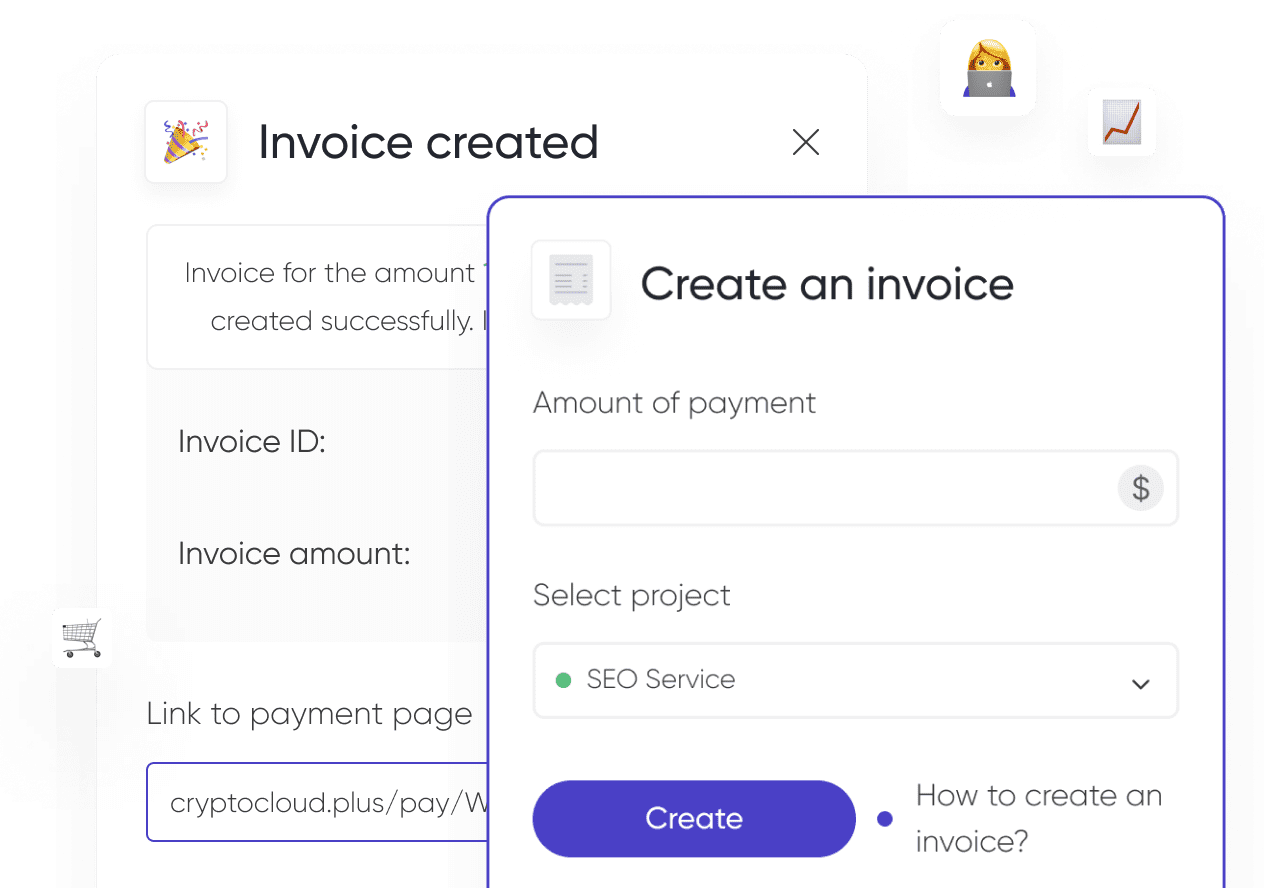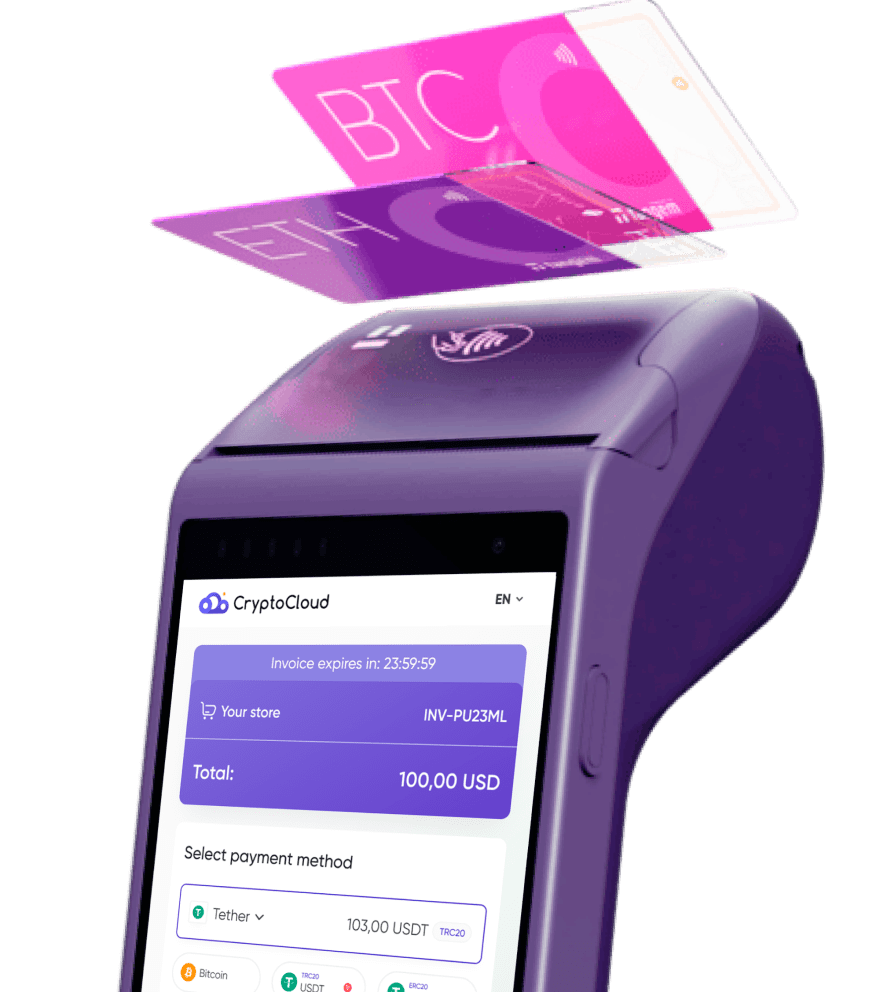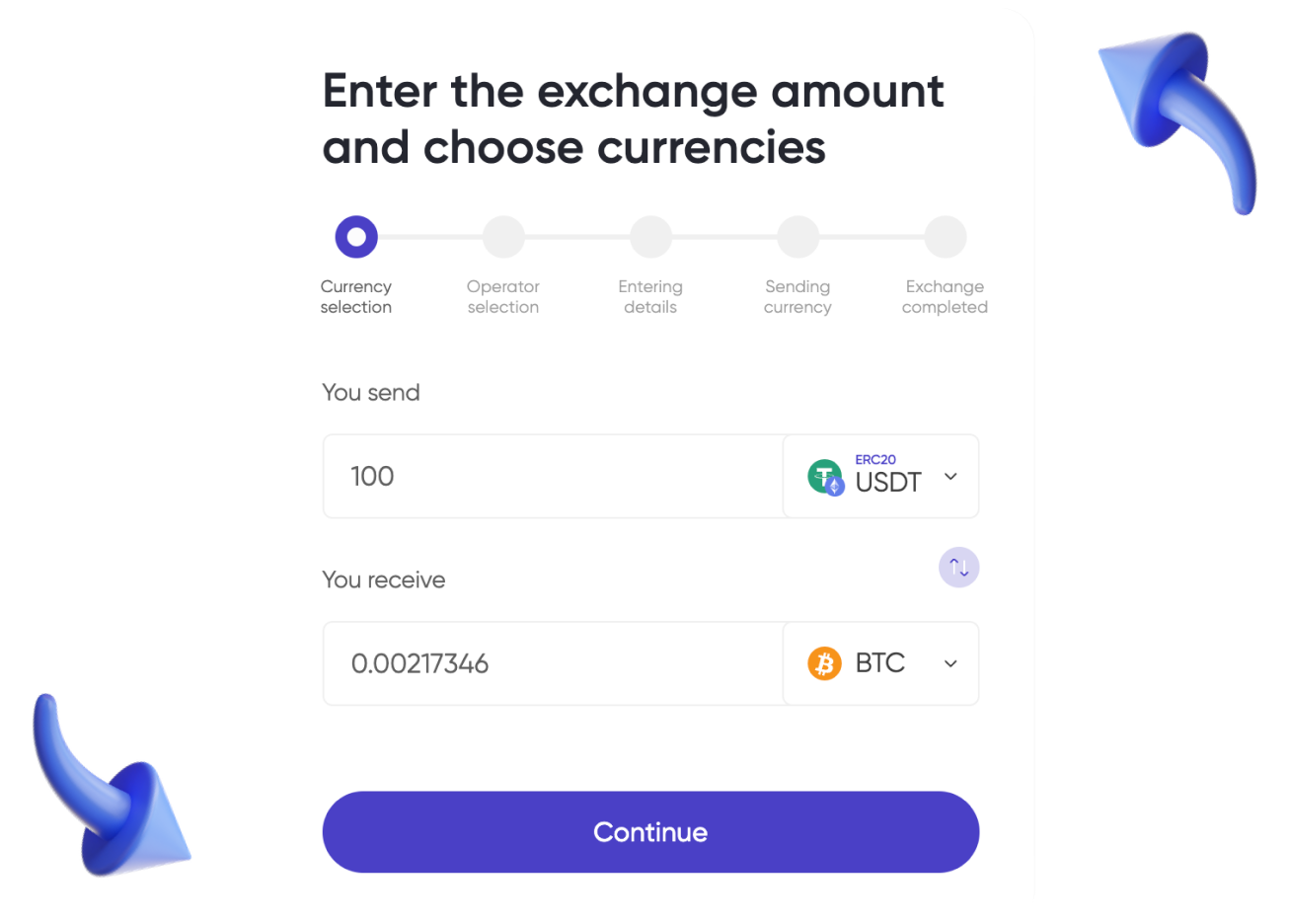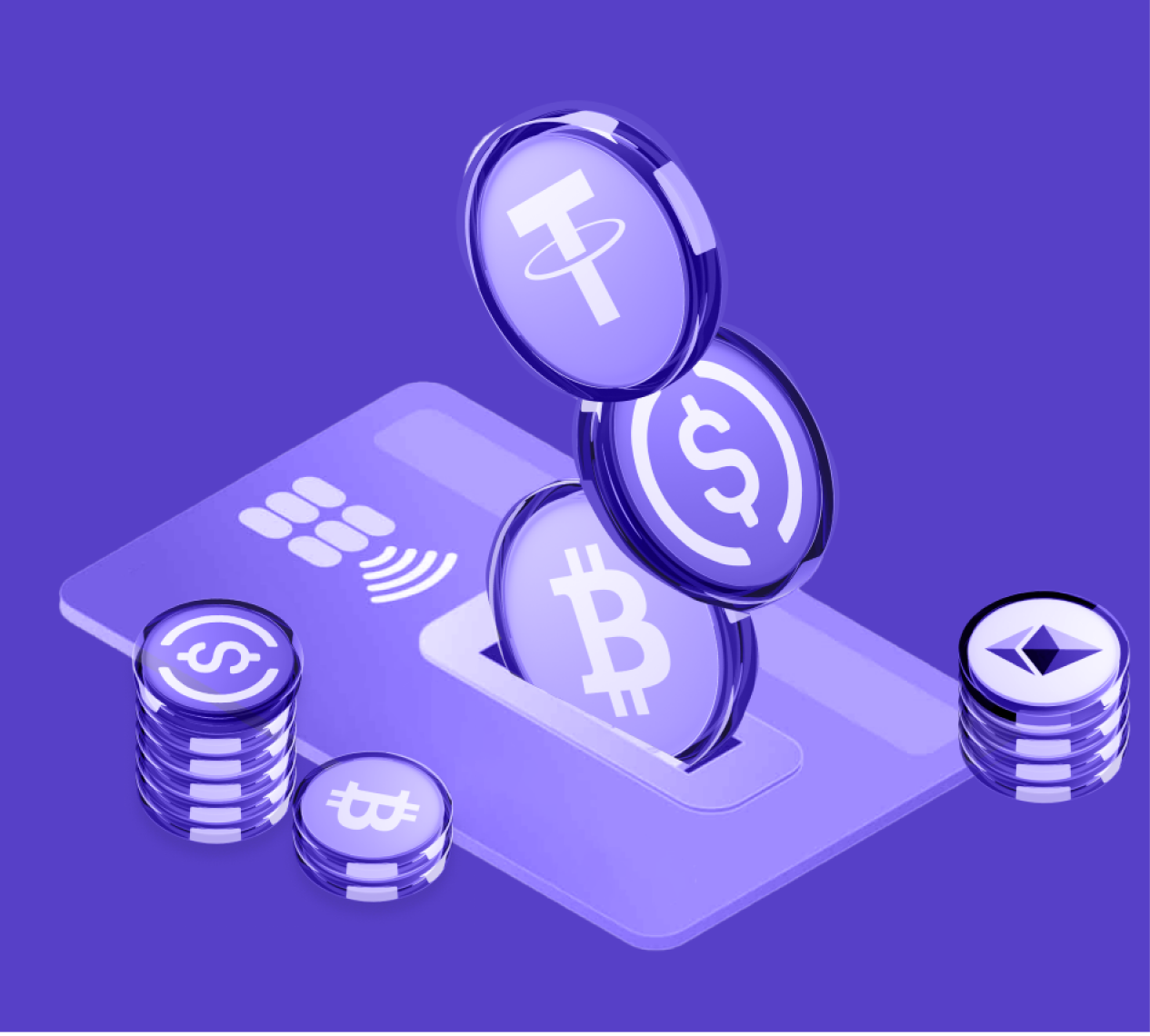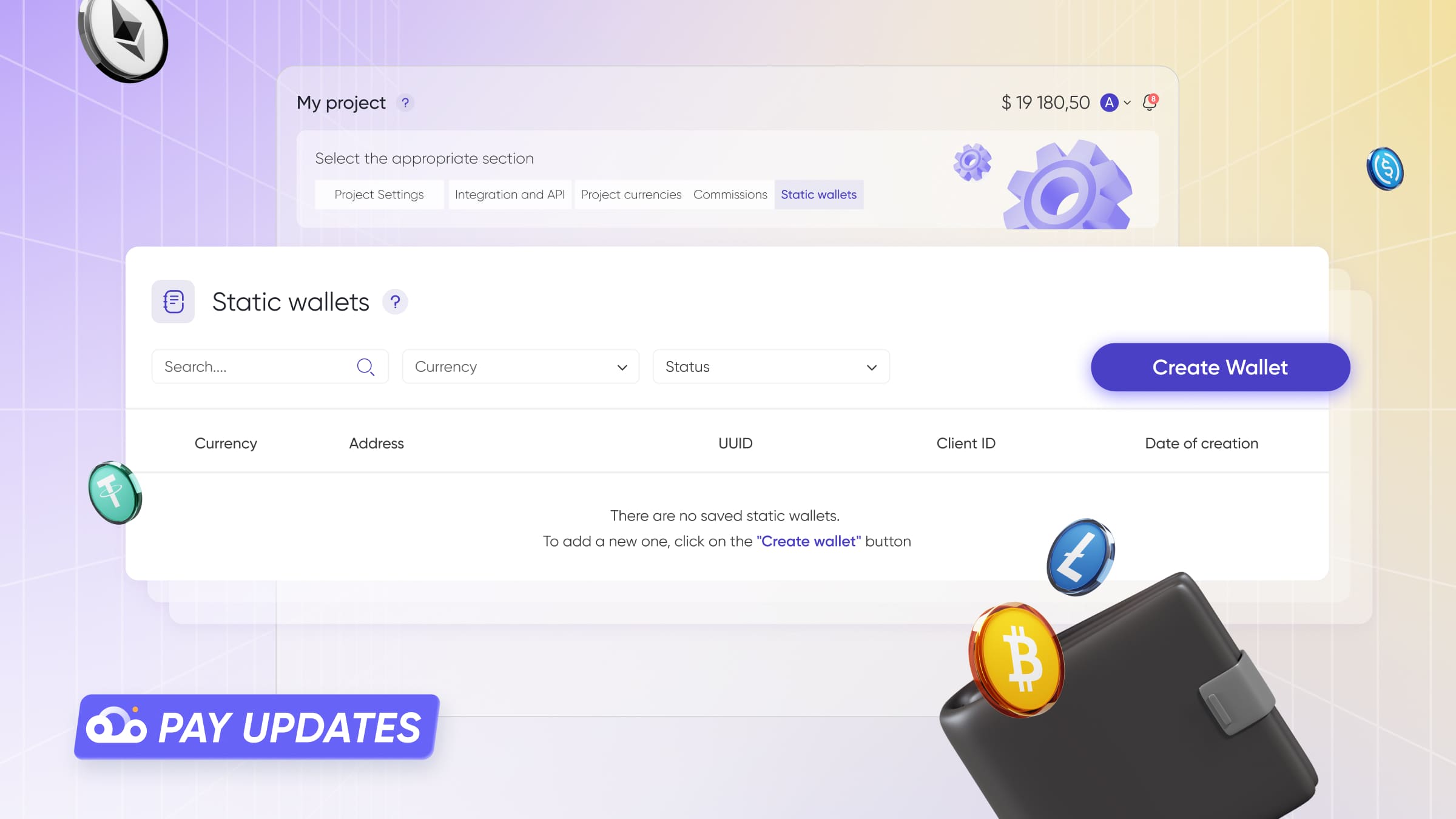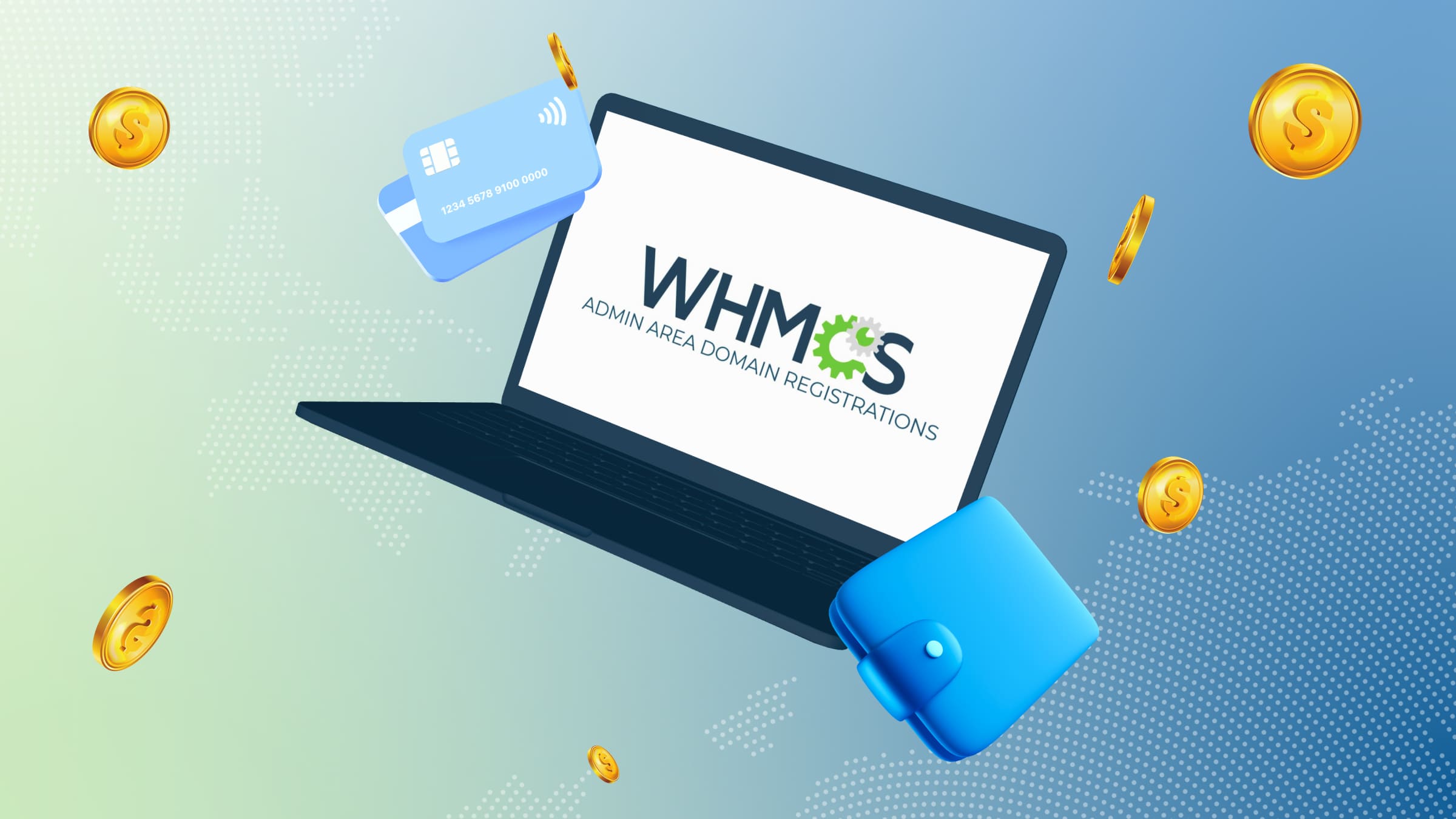The digital sphere is an actively growing area that is gaining momentum with the development of modern technology. One of the drivers for the growth of this sector was the COVID-19 pandemic when many entrepreneurs switched to the online format. Statista estimates this market to reach $7.62 trillion in 2024, rising to $10.32 trillion by 2028.
We explain the digital sphere, what digital goods to sell, what to consider before getting started, and how to organize payment receipt.
What Are Digital Goods
Before we take a look at how to sell digital goods, let's figure out what exactly they are.
Digital goods are any products that exist only in electronic form and have no physical form. They can be text, music, software, etc.
From a business perspective, digital goods on the Internet have several important features. Such products do not require storage and delivery costs, are easy to replicate and scale, and have a high return on investment due to the absence of physical production costs.
Once they are purchased, the customer has instant access to them. Launching a digital business is usually simpler than a regular enterprise: you do not need to rent production and warehouse space, look for suppliers, etc.
Types of Digital Goods
The main kinds of digital goods include:
- Educational materials. There is a wide range of formats: short guides and checklists, video and audio lectures, master classes, online seminars and courses. The topic of the material can be either a general overview of a topic (e.g., a lecture course on organic chemistry or classical literature) or a solution to a specific issue (a master class on knitting a stuffed toy).
- Books. In the digital sphere they are popular both in text format and audio versions. The subject matter can also vary: expert materials, non-fiction, fiction.
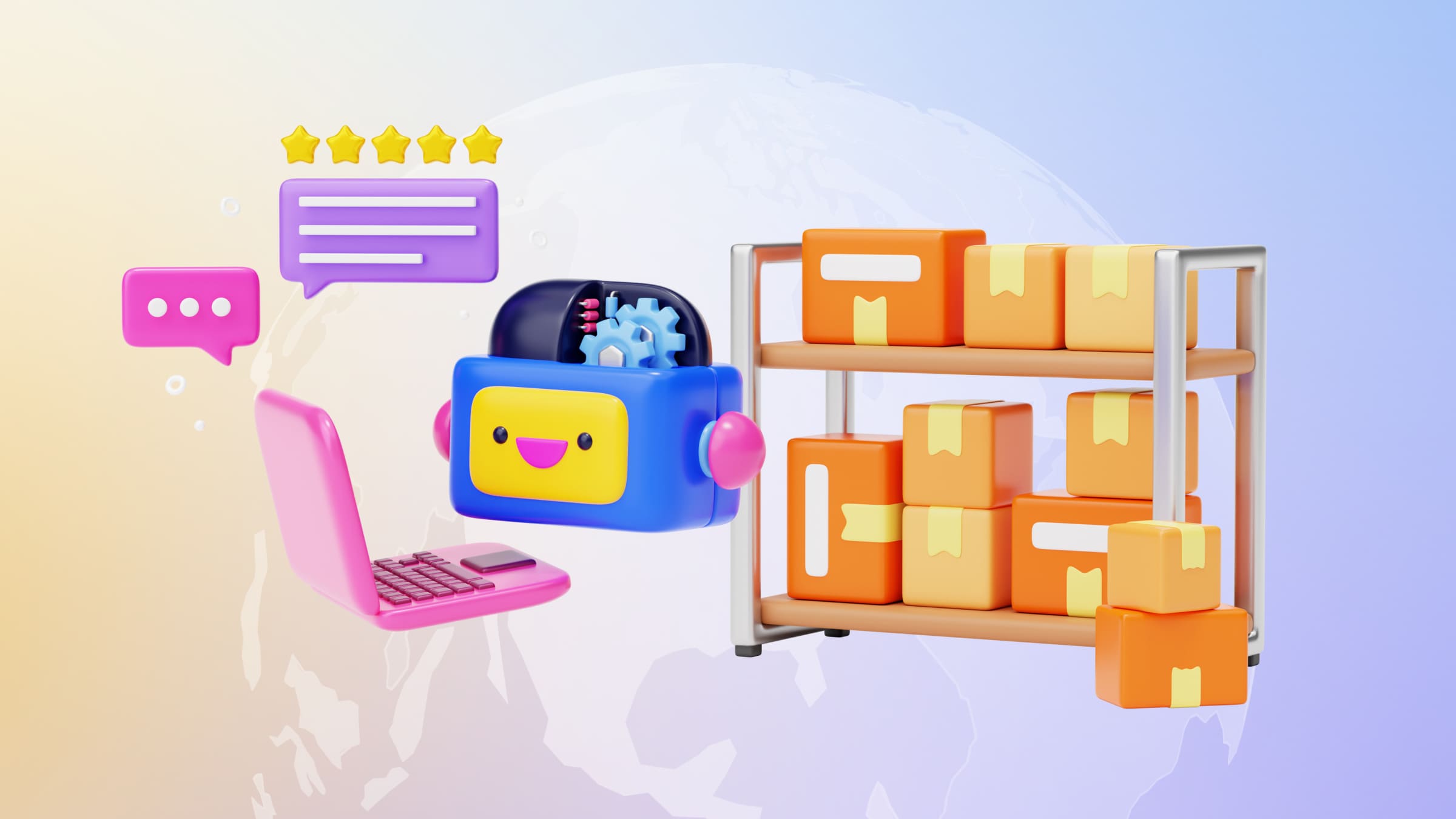
- Software. Useful tools are in demand in all areas, including business process organization, accounting, design and image processing software, and cloud storage.
This is a vast sphere with a high level of competition. It is important to offer the client a unique, high-quality solution to a problem that is different from those on the market. - Digital art and media. This section includes many formats: music videos, sound effects for video production, online magazines, presets (an author's set of settings) for photo processing, podcasts, etc. Selling your own art and other people's art is relevant, but it is important to respect copyright laws.
- Subscriptions to closed channels or mailing lists. Their subject matter can be any: informational or educational articles, a daily selection of recipes, closed content from a popular blogger, etc. As a rule, this format is relevant for users with their own audience and ready to offer additional exclusive materials.
What to Consider Before Starting Sales
There are several factors that are important to take into consideration before launching a store selling digital goods:
- Security. It is important for both sides of the transaction. Measures should be taken against fraud and copying of materials, and customers' payment and personal data should be protected.
- Platform selection. You can sell digital goods online through your own website or marketplace. The website can be written independently, which gives more freedom of action, or created on the basis of a CMS, which simplifies the launch.
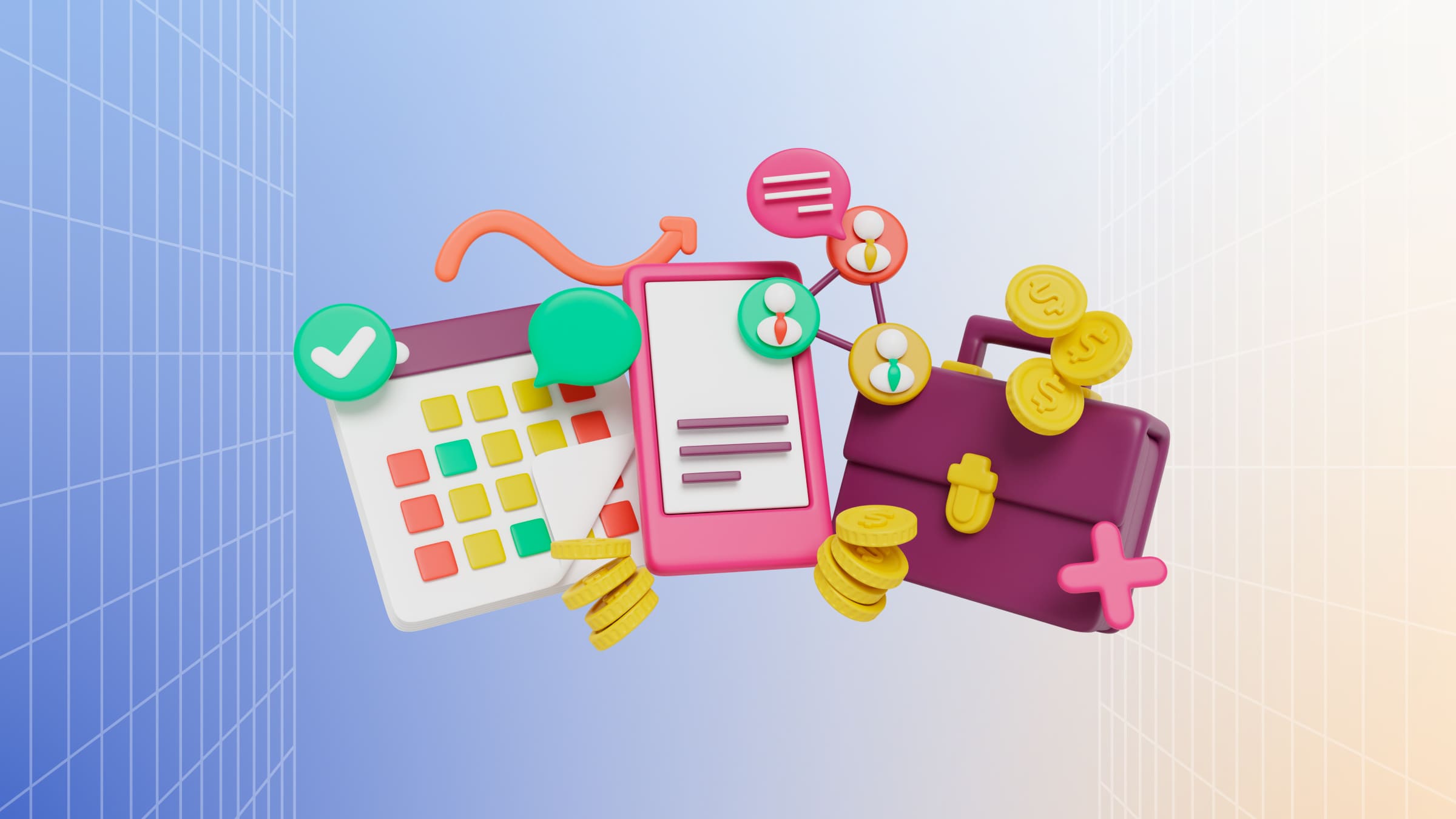
- Terms of sale. Before launch, a number of issues should be decided: whether the buyer will have temporary or permanent access, whether a one-time payment will be accepted or a monthly subscription will be required, and whether materials will be available to download.
- Accepting payments. There are several ways to accept payments, including bank cards, e-wallets, «Buy Now, Pay Later» services, and cryptocurrency transactions.
Ways of Selling Digital Goods
Marketplaces and e-commerce platforms
Online marketplaces are popular platforms where you can sell digital goods. Working on them allows you to launch sales quickly and avoid the costs of creating and promoting your own website. The main options include:
- eBay is a global marketplace where sellers can list digital goods like e-books and software. Known for its auction and fixed-price options, eBay’s wide reach and ease of use make it a popular choice, though sellers must follow specific policies for digital products.
- Temu is a newer platform known for competitive pricing, expanding into digital goods alongside its physical offerings. With a growing user base and simple interface, Temu is a good option for sellers targeting budget-conscious customers.
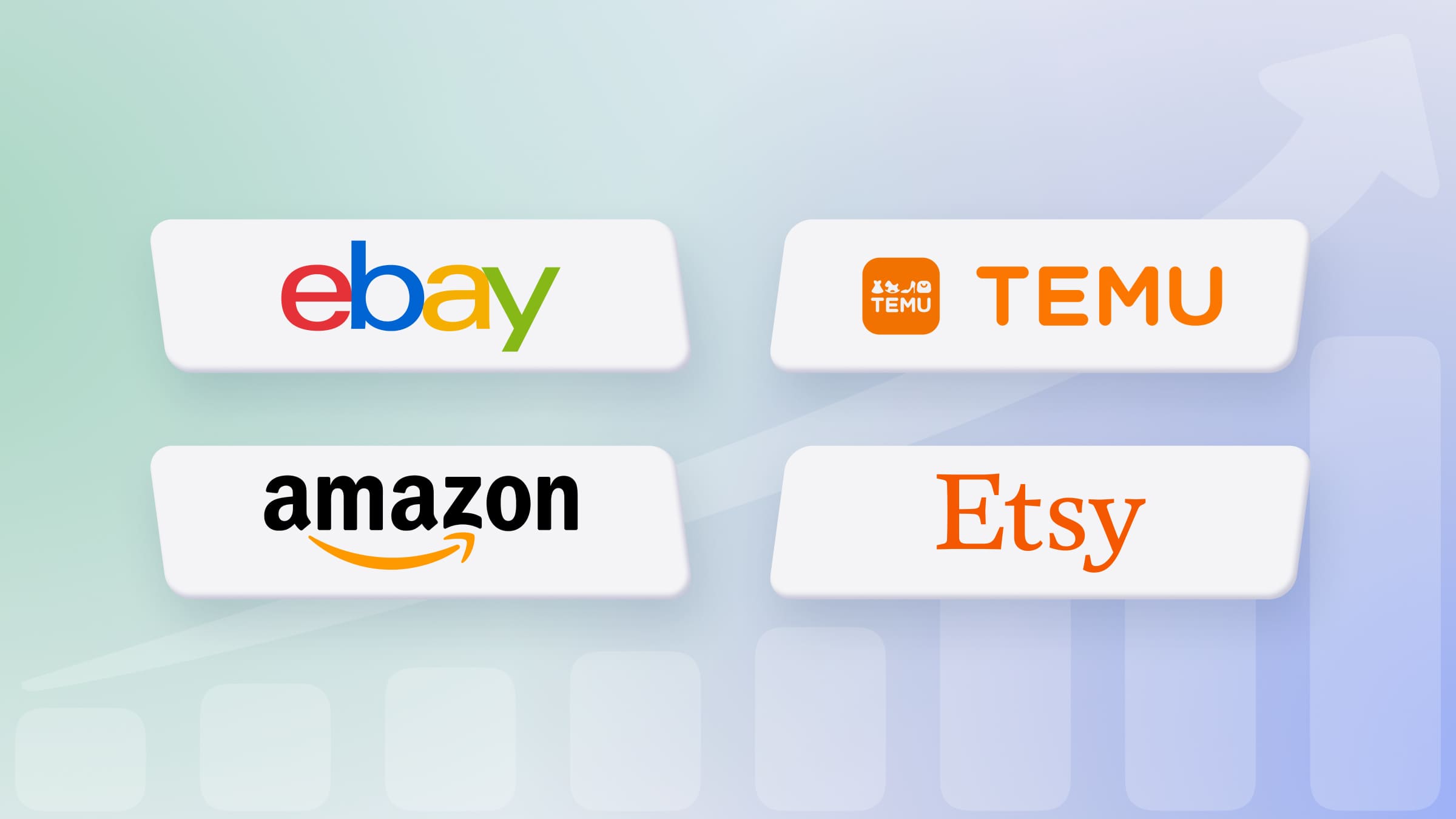
- Amazon is the largest international marketplace. Sllers can use it as a platform for selling digital goods, like e-books, music, movies, applications and software.
- Etsy is an international marketplace for creators of unique goods. Although the platform is designed primarily for authors of handmade products, it is also possible to use the website as a platform for selling digital goods: categories include books, music, movies, and games.
Website
Selling digital goods on a website is the second way to work with buyers. Although this option, unlike a marketplace, does not provide access to an existing audience and requires more investment to launch, it has several advantages:
- independence from the rules and restrictions of marketplaces;
- the ability to build its own loyal audience, rather than relying on platform users;
- absence of intermediary platform commissions.
Accepting Payments for Digital Goods
The main ways of accepting payments on the website include:
- Bank cards. One of the most common options. Accepting payments with bank cards is convenient due to its wide spread: credit/debit cards are available to all users, and transactions do not require the creation of accounts in third-party services.
Such transactions can be connected either through the acquiring bank or a third-party payment system, such as Stripe, Braintree, PayPal, etc. - Electronic wallets. Another popular option that attracts buyers with convenience and security. This method supports most payment systems, and many wallets allow you to integrate your own checkout on the website.
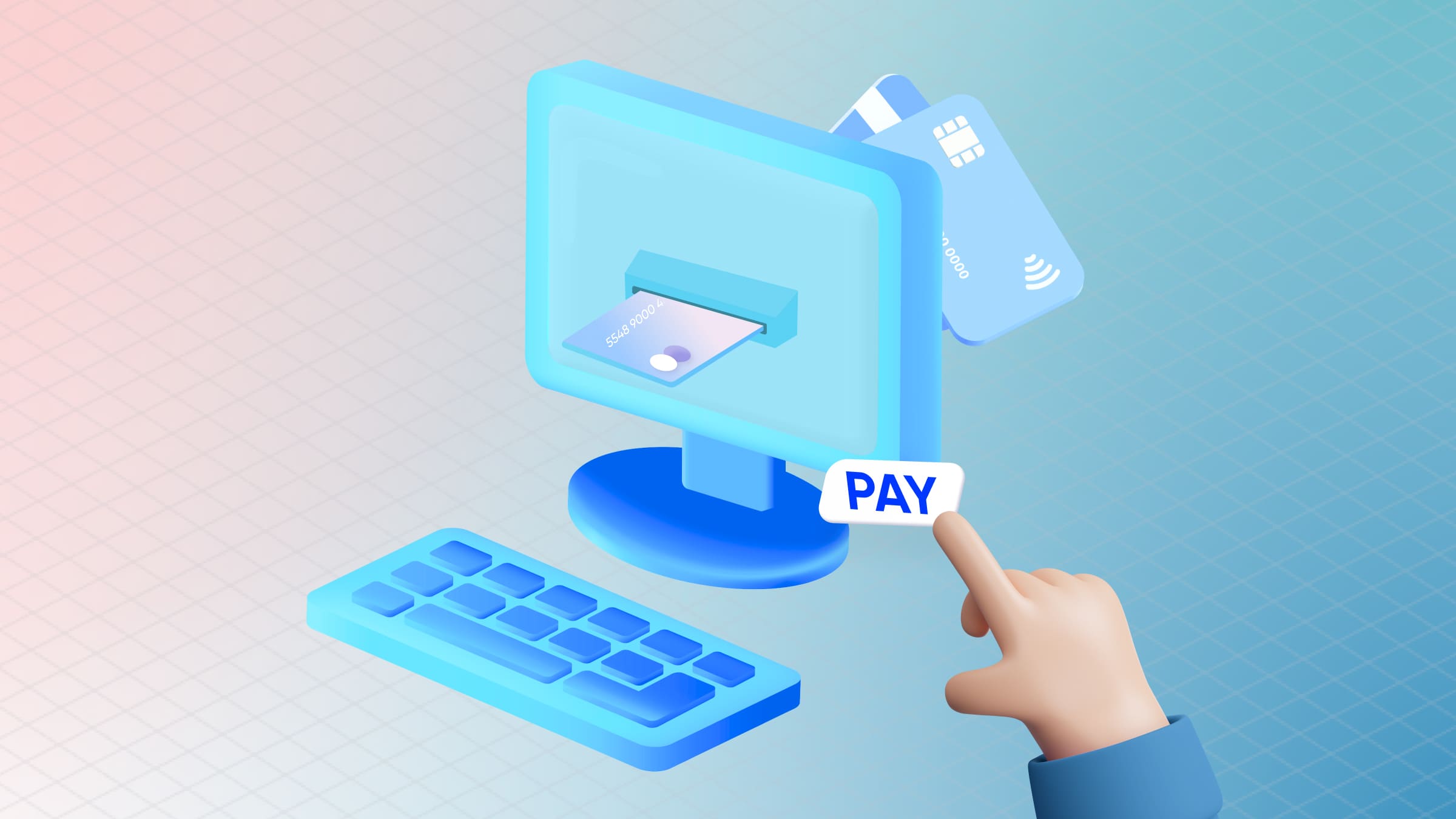
- Installments. Several services, including official banking systems and third-party platforms offer this type of service. This method of payment is relevant for businesses offering high-priced goods.
- Cryptocurrencies. This is a relatively new method of payment, which is rapidly gaining popularity. It has several advantages: anonymity, security, and high transaction processing speed. One of the main advantages of crypto-payments is independence from sanctions restrictions, which is relevant for businesses aimed at an international audience.
It is possible to accept payment in this way through transfers to a cryptocurrency wallet or the connection of a processing service.
Accepting International Payments with CryptoCloud
Digital goods allow you to work with audiences from all over the world without considering geographical restrictions. However, amid sanctions, such work has become difficult. One of the solutions to the problem is payment via cryptocurrency.
To make such payments convenient for both parties, you can connect a cryptocurrency processor like CryptoCloud to a website or online store. The service allows you to work with major currencies, accept payments via payment links on the website or other platforms, and work with statistics and analytics.
Additional features include AML transactions checks and auto conversion to USDT to protect against exchange rate volatility. The service fee is from 0.4%.
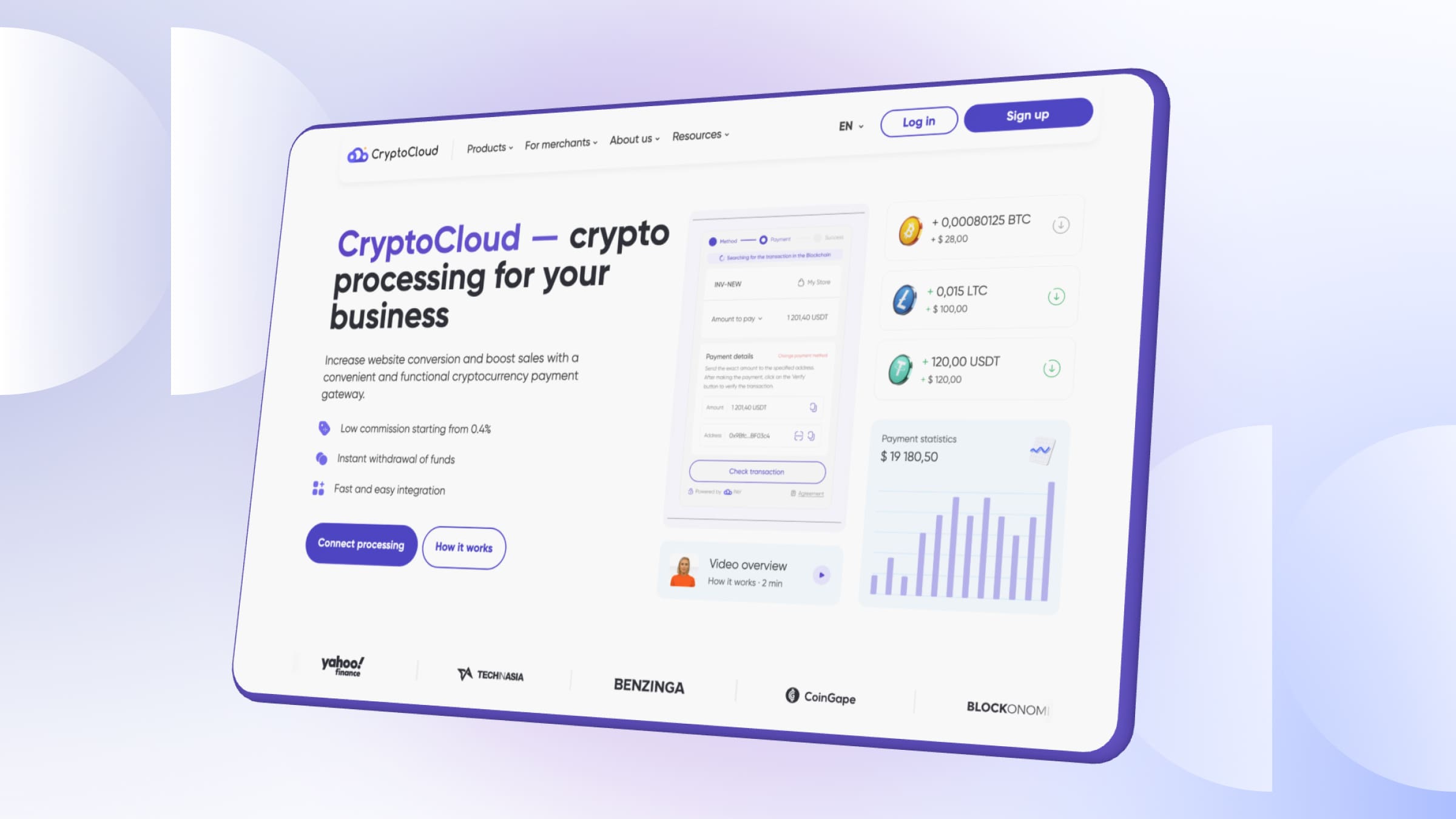
To start working with the system, you will only need to register on the processor's website. CryptoCloud provides detailed text and video instructions for all stages of work, from project creation to checkout integration on the website.
Selling Digital Goods Worldwide
The digital sphere is a popular option for starting a business. It includes a wide range of products (from training courses to software) and allows you to reach audiences worldwide without worrying about storing and shipping physical products.
You can accept payments for digital goods in several ways. One of them is cryptocurrency payments, which have become a convenient option for working with foreign clients amid sanctions. To enable them, you can connect to the CryptoCloud processor, providing users with a user-friendly interface, useful functionality, and low commissions.

